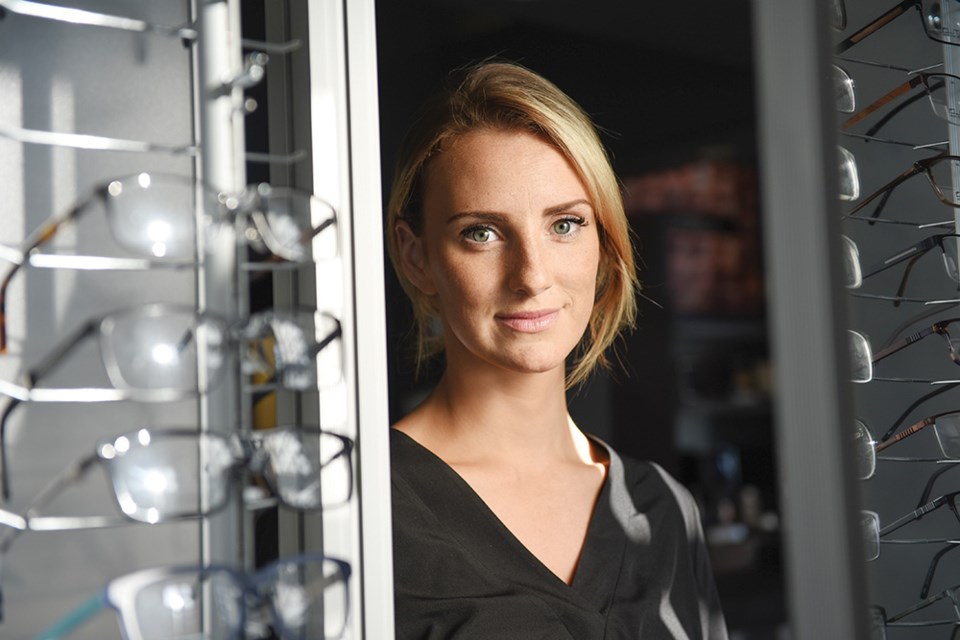Concussions can be much more than a bump on the head – sometimes they can take people away from the sports and outdoor activities they love.
Yoga teacher Laura Soohen knows that first hand.
Soohen was a dedicated rugby player in both high school and university. In 2004, during the start of her final year of playing for St. Francis Xavier University, she was hit – hard – and had to be taken off the field.
“I didn’t come through until I was in the training room. To be honest, I didn’t remember what happened until I saw the game tape,” she said.
Soohen was out for most the season with a concussion, but she badly wanted to play in nationals, so she returned to the field in the final game despite not being fully healed.
A second hit – resulting in a second concussion – left her with nausea, trouble concentrating and a major sense of loss.
“After that I was done,” she said. “A lot of it was fear – I was afraid to get hit, and you can’t play that game and be afraid to get hit. As an elite athlete it was devastating. It was my life, as with anyone doing something that they love, and suddenly you’re pulled out of it. Emotionally it’s hard, and physically it’s hard.”
Soohen found healing in yoga and meditation, eventually leading her on a new path to become a yoga teacher. Now she teaches yoga at Moksha in Squamish and Vancouver.
While awareness about concussions has grown in the athletic world, especially the need to sit out if there’s a risk of a second concussion, many people still don’t realize that they can be life-changing, said Squamish-based physiotherapist Karina Steinberg.
Steinberg specializes in treating concussions, and has given presentations and workshops to help spread awareness about treatment options.
“People are more aware, but I don’t know if they’re truly aware of not just the risks of getting a concussion, but the risks of truly prolonged symptoms and how it can change your life in the long term,” she said.
“If you get a bunch of concussions in a row, you might have motion sensitivity for the rest of your life, or you might have word-finding difficulties or even change to more of an introvert than an extrovert.”
Concussions can be cumulative – a second hit after an initial concussion can lead to longer recovery times, more severe symptoms and permanent damage.
In most concussion cases, symptoms occur within the first week and go away within three months, according to the Mayo Foundation for Medical Education and Research. Post-concussion syndrome is a disorder in which uncomfortable symptoms last for weeks and sometimes months after the injury.
Steinberg said a lot of the research around concussions focuses on young men playing organized sports at the university level. But her most common concussion patients in Squamish are female mountain bikers in their late 30s.
In the Sea to Sky area, active lifestyles that include mountain biking, climbing, skiing and snowboarding all present higher risks for concussions. Steinberg said car accidents and organized sports are another big contributor – although she has also treated a hiker on the Chief who had a nasty run in with a tree branch.
Patients were once told that the best way to heal – and to deal with difficult symptoms like light-sensitivity and vertigo – was to sit in a dark room until they felt better.
Steinberg said that attitude has changed, and she now encourages patients to get back into physical activity slowly with walks and stationary biking, instead of going into sensory deprivation.
The symptoms caused by concussions can also be connected to the neck, ears and eyes, which all work closely with the nervous system to help people function.
Optometrist Melanie Hennenfent, who works in Squamish and West Vancouver at Optomeyes Eye Care, offers vision therapy rehabilitation to patients. The treatment is similar to physiotherapy, but focusing on the eyes.
Many of her clients suffer from concussions and the visual impairment that often accompanies the injury.
“Vision is very important for your sense of space,” said Hennenfent, noting that common symptoms like dizziness, headaches and balance problems can all relate to the eye.
“You can tell when they’re doing a physio program with someone post-concussion, they’re doing a lot of eye training. Optometry is getting on board with that,” she said. “We’re realizing the number of patients around here for one, is high – probably because everyone is so active – but also the number of patients who suffer visually is significant.”
As research into concussion treatment grows, more healthcare professionals are working together to make sure both high-level athletes like Soohen and Squamish weekend warriors can get back to the pursuits they enjoy.
“I’ve had patients just cry in my chair out of excitement that something can be done, or that the vision changes they’re experiencing are normal after a concussion,” said Hennenfent.



